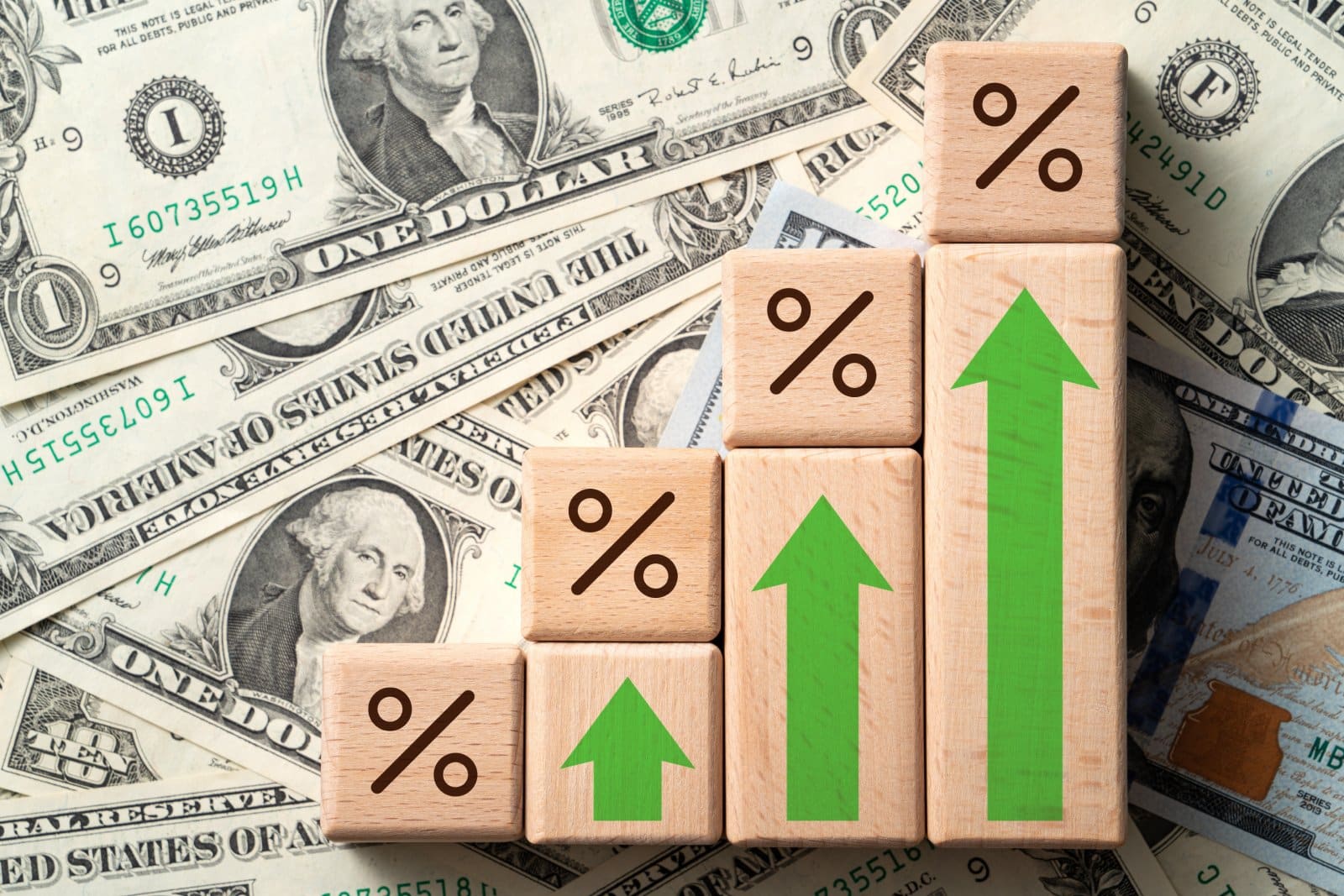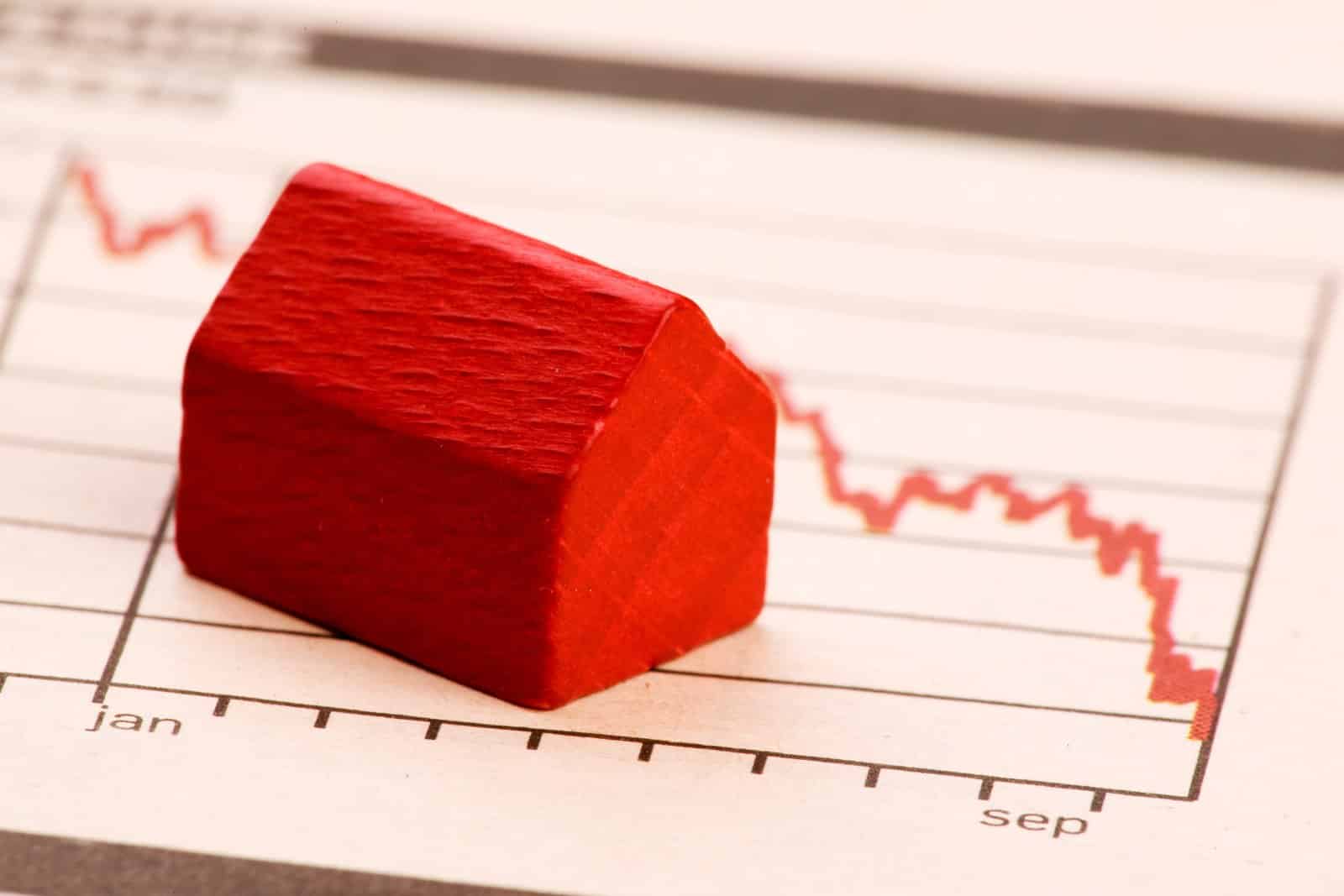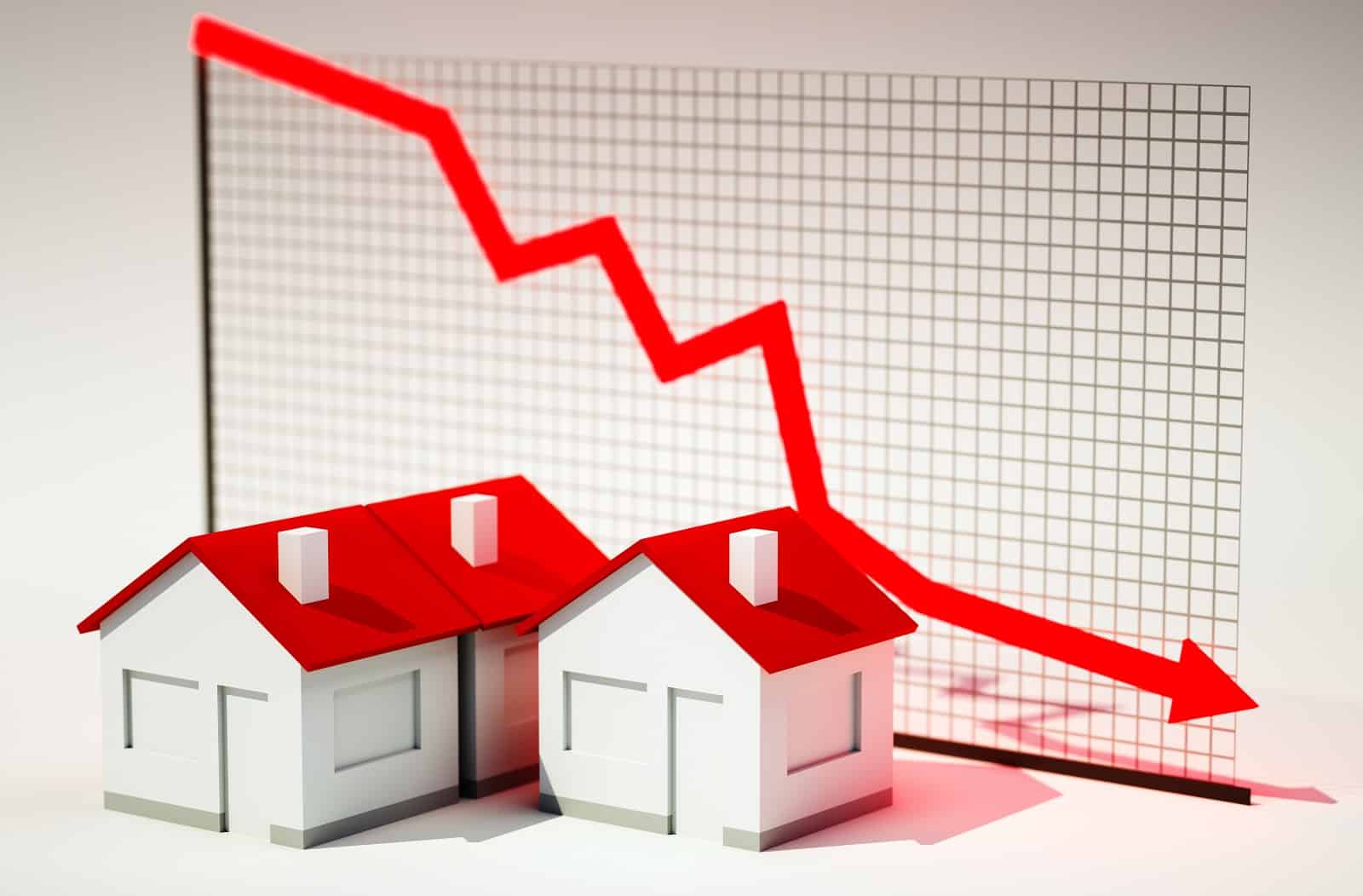The U.S. housing market is at a turning point. High mortgage rates mean prices might drop, giving buyers a chance to get their foot in the door. Meanwhile, sellers face new challenges as interest rates and the number of homes for sale change.
U.S. Housing Market Hits Rock Bottom

According to the CEO of real estate firm Redfin, the housing market has hit “rock bottom.”
Hope for Buyers

While these changing conditions bring hope for buyers, it continues to be a challenging period for homeowners and sellers.
Unyielding mortgage rates and an environment where price reductions are becoming increasingly common make things increasingly difficult.
Mortgage Rates at a Peak

Despite predictions of a decline in home prices, the market remains tough, with prices stabilizing or even increasing, largely due to the limited number of homes available for sale.
The climb in mortgage rates to a 20-year high has a greater impact on first-time buyers, who are finding the competition fierce against cash or equity-rich purchasers.
Current Interest Rates

The benchmark interest rate is currently at 5.50 percent, its highest in over two decades. And according to the Federal Reserve, this high suggests that the peak of the tightening cycle may have been reached.
Outlook on Interest Rates

The path forward for the housing market closely aligns with monetary policy adjustments. Decreased interest rates could significantly relieve current pressures, potentially reinvigorating buyer interest and energizing market activity.
Sellers Face New Realities

For years, sellers have enjoyed a market that favored rising home values, but the current conditions suggest a shift.
As buyers find more room to maneuver, sellers might see their advantages wane. This anticipated market adjustment suggests sellers may need to brace for a period where home values could begin to soften.
Surge in Median House Prices

In 2021, the median home price in the U.S. rose 16.9% to $346,900, marking a record increase. Forecasts indicate a slight adjustment to $380,000 by the end of 2023 after reaching a peak of $417,700 in the last quarter.
Signs of Inventory Improvement

A slight uptick in houses on the market offers a silver lining, providing some relief for some buyers. Although still below pre-pandemic levels, the increase in homes for sale hints at a market slowly moving toward balance.
Sellers also appear to be open to reducing their listing prices, indicating a responsiveness to buyer demands and market conditions.
Expectations of Price Adjustments

The trend of price reductions has been noted, with many homes seeing price drops, signaling a potential shift towards buyer advantage.
High-profile predictions suggest more price reductions are ahead, offering hope for prospective homeowners.
Dual Challenges for Buyers

Despite potential price drops, buyers are also dealing with high mortgage rates and escalating insurance costs influenced by climate change.
These escalating costs make homeownership more expensive, highlighting how market forces affect buyers.
Sellers’ Reluctance

The high interest environment has made current homeowners hesitant to sell as they attempt to hold on to their low-rate mortgages.
This hesitation weakens the housing supply, keeping prices high in a market that would otherwise see more significant adjustments.
Equity Considerations

Thanks to years of rising home values, homeowners are currently enjoying high equity levels.
However, a potential market shift could impact this positively trending equity, presenting a risk to sellers and homeowners alike as they consider the long-term value of their investments.
Insurance Impacts on Home Values

Increasing insurance premiums, a consequence of climate risks, may also affect future home valuations.
Relative adjustments in market prices have the potential to affect both current homeowners and those looking to sell, highlighting the broader implications of external factors on the housing market.
Changing Preferences Among Homebuyers

A significant new trend is the increased number of people considering relocation across the country, with 32.3% of Redfin.com users exploring these options.
This rise in mobility reflects a shift from pre-pandemic patterns. With more people able to work from home, housing demand favors suburban and rural areas.
Market Adjustments

Housing market changes affect both buyers and sellers alike. As the market finds a new equilibrium, opportunities for buyers are emerging, while sellers may need to adjust to a more competitive environment.
Adapting to Market Shifts

This adjustment phase in the housing market demands a different strategic approach from the past.
Opportunities for Buyers

Opportunities for buyers are increasing, while sellers might have to rethink their strategies to align with the changing dynamics of the market.
21 States Where Squatters Can Legally Claim Your Property

Discover how squatters’ rights, or adverse possession, are more than just legal jargon—they’re stories of unexpected twists in the world of real estate. From sunny California to the historical landscapes of Pennsylvania, here’s how these laws could turn the tables on homeowners and squatters alike. 21 States Where Squatters Can Legally Claim Your Property
14 Things That Are Banned in the U.S. but Totally Fine Elsewhere

Ever feel like America’s rulebook was written by someone with a dartboard? Across the pond or down under, things get even wackier. Let’s take a walk on the wild side of global “Do’s” that are definite “Don’ts” in the Land of the Free. 14 Things That Are Banned in the U.S. but Totally Fine Elsewhere
25 American States Nobody Wants to Visit Anymore

Across the United States, some states capture the hearts and itineraries of many, while others remain quietly on the sidelines, overshadowed or misunderstood. These 25 states, facing what you might call a popularity crisis, are brimming with hidden wonders, cultural riches, and natural beauty, awaiting those willing to look beyond the usual tourist trails. 25 American States Nobody Wants to Visit Anymore
20 Foods That Are Cheaper to Eat Out Than Making at Home

In a world where convenience often wins, certain culinary delights come with a lower price tag when enjoyed at a restaurant rather than crafted in your own kitchen. Here are twenty foods that might save you both time and money when indulged in at your favorite eatery. 20 Foods That Are Cheaper to Eat out Than Making at Home
17 Things You’re Paying For, but You Don’t Have To

In the land of the free, there’s a price tag on everything, but savvy Americans know better than to open their wallets for just anything. Here are 17 expenses you’ve been shelling out for without realizing there’s a cheaper or even free alternative. 17 Things You’re Paying For, but You Don’t Have To
The post U.S. Housing Market Hits All-Time Low first appeared on From Frugal to Free.
Featured Image Credit: Shutterstock / 4 PM production.
The content of this article is for informational purposes only and does not constitute or replace professional financial advice.
